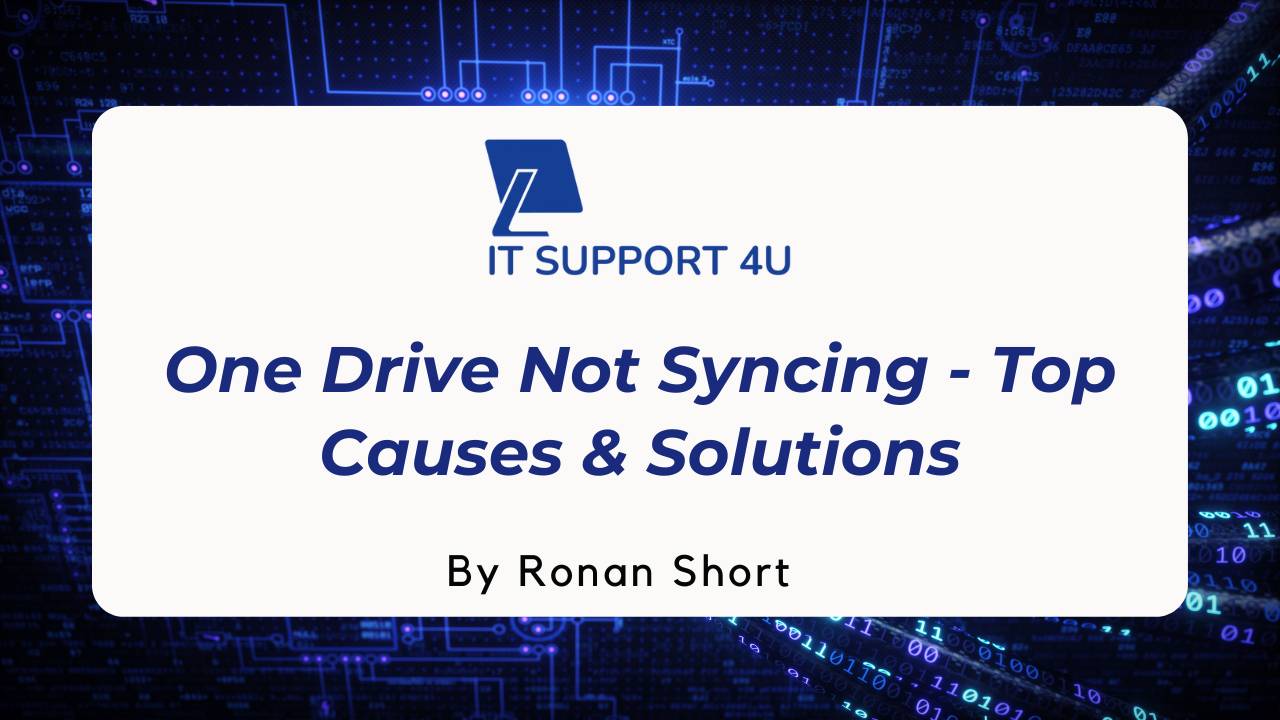In the world of network security, where keeping digital assets safe is key. For Irish business owners, choosing the right firewall can be overwhelming. You're not alone in trying to understand the difference between managed and unmanaged firewalls.
It's a critical choice! With one-fifth of small businesses facing cyber attacks in their first year, making the right decision is essential for success in today’s digital world. This guide provides clear insights into different firewall options to help you choose the best one for your business.
We'll explain each type of firewall and its maintenance in this blog. So you can feel confident about your network security. Now, let's explore these options together and find the best way to protect your online business.
Key Takeaways
- Managed firewalls are overseen by a third-party service provider, reducing the need for internal resources but resulting in higher costs.
- Unmanaged firewalls require internal setup, maintenance, and monitoring but offer more control and cost-effectiveness.
- Understanding the differences between managed and unmanaged firewalls is essential for deciding which type aligns best with your business needs and IT capabilities.
- Factors such as security needs, scalability, compliance requirements, budget constraints, integration with existing systems, performance impact, support, and maintenance availability should be considered when choosing the right firewall for your business.
Understanding Firewalls
Firewalls act as a barrier between your internal network and the outside world, filtering data frames to prevent unauthorised access. There are different types of firewalls, each with its own set of features and functions.
How do Firewalls work?
Firewalls act like security guards for our computers and networks. They check data coming in and going out, making sure nothing harmful sneaks through. Imagine a wall with a gate; firewalls only let trusted visitors—like emails or website information—pass if they follow the rules we set up.
They block hackers and viruses that try to get into our systems or send out personal company information without permission.
Knowing how firewalls keep us safe helps us see why they're so crucial. Next, let's look at the different types of firewalls available and understand which might be best for your business.
Types of Firewalls
Firewalls come in different types, each serving specific purposes. Here are the main types:
- Packet Filtering Firewalls: These examine packets of data and decide whether to let them pass or not based on predefined rules.
- Proxy Firewalls: They act as intermediaries between the user's network and the internet, filtering requests at the application level.
- Stateful Inspection Firewalls: These monitor communication paths, keeping track of the state of active connections and only allowing legitimate traffic.
The Importance of a Firewall
Firewalls are essential for protecting your business network from unauthorised access and potential security threats. They act as a barrier between your internal network and the external internet, allowing only authorised traffic to pass through.
In today's digital age, having a firewall in place provides crucial security measures against cyber-attacks and data breaches.
Advantages and Disadvantages
In considering the implementation of a firewall, it's vital for us as Irish business owners to weigh the advantages and disadvantages to ensure we're making an informed decision.
Advantages
- Enhanced Security
- Protection from Cyber Threats
- Control over Network Traffic
- Compliance with Data Protection Regulations
- Peace of Mind for Stakeholders
- Customisable Security Policies
Disadvantages
- Complexity in Management
- Protection from Cyber Threats
- Potential for False Positives
- Control over Network Traffic
- Requires Regular Updates
- Can Be Costly
- Might Slow Down Network Speed
- Needs Skilled Personnel to Manage
Deploying a firewall comes with the promise of robust protection, but we must acknowledge the potential challenges that accompany it. By in-depth assessing these factors, we can choose the most suitable firewall that aligns with our business requirements and objectives.
Managed vs. Unmanaged Firewall
Managed firewalls are handled by a third-party service provider, while unmanaged firewalls require internal resources for configuration and maintenance. Understanding the differences can help you choose the right firewall for your business needs.
So, read more to make an informed decision.
Definitions and differences
Managed and unmanaged firewalls both serve the vital purpose of protecting your business's network from unauthorised access. A managed firewall is overseen by a third-party provider who handles the configuration, monitoring, and updates.
On the other hand, an unmanaged firewall requires internal resources for setup, maintenance, and monitoring. The key difference lies in who manages the firewall settings and network visibility.
Choosing between a managed or unmanaged firewall depends on your business's IT support and internal network management capabilities. Managed firewalls offer expert oversight but require cost allocation for third-party management.
Benefits and drawbacks
After understanding the differences between managed and unmanaged firewalls, it's important to weigh their benefits and drawbacks. Managed firewall services can provide 24/7 monitoring, regular updates, and an immediate response to security threats.
However, they may come with higher costs and reliance on a third-party provider for network control. On the other hand, unmanaged firewalls offer more control over configuration and may be cost-effective, but they require in-house expertise for administration and continuous monitoring.
In considering managed or unmanaged firewall solutions for your business, it's essential to assess the level of support needed versus the budget available. While managed services offer convenience and professional oversight, they might involve higher expenses.
Unmanaged options can bring flexibility but demand internal resources for configuration and upkeep. Ultimately, the decision should align with your IT governance structure while ensuring comprehensive internet security within budget constraints.
Choosing the Right Firewall for Your Business
Consider factors such as the size of your business, the level of security needed, and budget constraints before deciding which type of firewall is best for you. To learn more about making this decision, read on to explore the differences between managed and unmanaged firewalls.
Factors to consider
When choosing a firewall for your business, it's important to consider several factors. Here are the key points to keep in mind:
- Security Needs: Evaluate your business's security requirements and the level of protection needed.
- Scalability: Consider whether the firewall can accommodate your business's growth and increasing network demands.
- Compliance Requirements: Ensure that the firewall aligns with relevant industry regulations and compliance standards.
- Budget Constraints: Assess the total cost of ownership, including initial setup, maintenance, and licencing fees.
- Integration with Existing Systems: Determine how well the firewall integrates with your current network infrastructure and software applications.
- Performance Impact: Understand the impact of the firewall on network speed and overall system performance.
- Support and Maintenance: Evaluate the availability of technical support and ongoing maintenance for the chosen firewall solution.
- User-Friendliness: Consider the ease of use and management interface for administrators and end-users.
Evaluating your business needs
Now that we have assessed the factors to consider when choosing the right firewall for your business, it's crucial to evaluate your specific business needs. Consider the size of your business, the nature of operations, and the sensitivity of the data being handled.
Evaluate the level of expertise within your IT team and whether you have resources dedicated to network security. Additionally, take into account any compliance requirements specific to your industry that may impact the type of firewall needed.
When evaluating your business needs for a firewall solution, also consider future growth projections and scalability requirements. Understanding these aspects will help in determining whether a managed or unmanaged firewall aligns better with your business needs and objectives.
Cost analysis
After evaluating your business needs and understanding the factors to consider, it's essential to conduct a cost analysis when choosing between a managed or unmanaged firewall. Managed firewalls usually involve an ongoing subscription fee for third-party management, which can be beneficial for businesses that lack in-house expertise.
However, this might result in higher overall costs compared to unmanaged firewalls, where you have more control over expenses but need internal resources for configuration and maintenance.
It's crucial to weigh the financial implications alongside your security requirements to make an informed decision that fits within your budget while effectively safeguarding your network.
Conclusion
In conclusion, understanding the difference between managed and unmanaged firewalls is crucial for safeguarding your business's network. Implementing the right firewall solution can significantly enhance your network security and reduce potential risks.
By evaluating your business needs, considering the cost implications, and understanding the benefits and drawbacks of each type of firewall, you can make an informed decision. It's essential to prioritise not only the initial setup but also ongoing management and maintenance.
Remember that protecting your network is an ongoing process that requires careful consideration and proactive measures.
Get an IT Plan Today!













